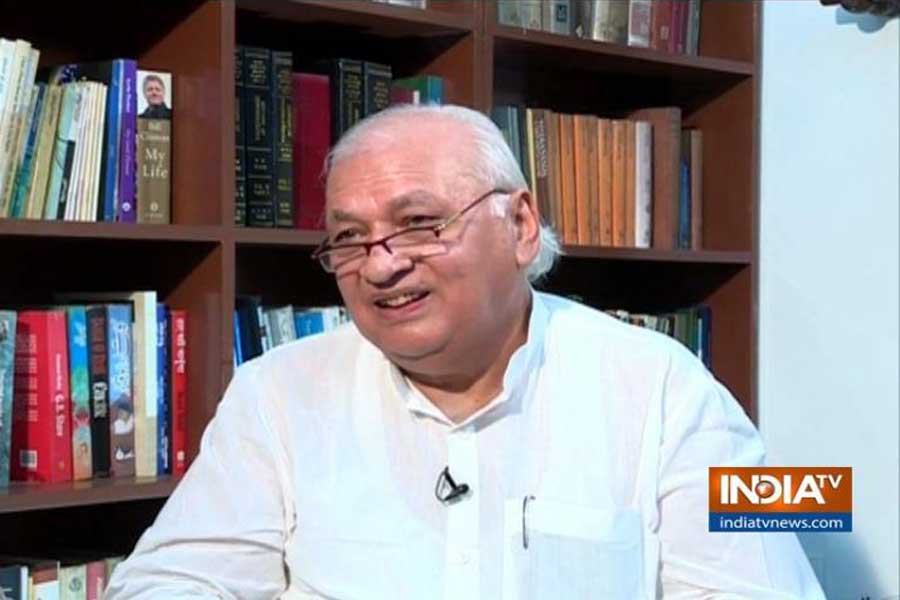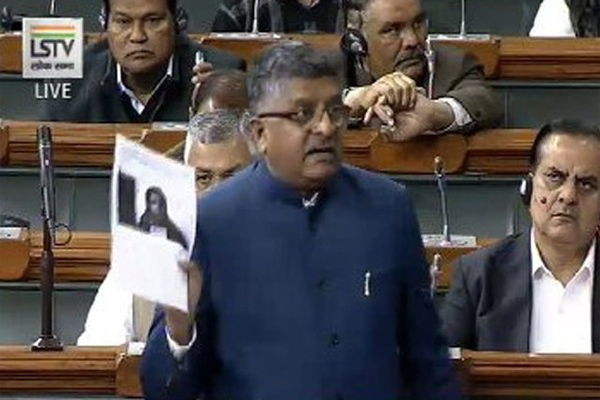As a crusader for reformation of Islam from within the community, Arif Mohammad Khan veritably is seen as a progressive Muslim face. But above all that, Arif Mohammad Khan has passed the Hindutva litmus test—among the few Muslims who has managed to accomplish that. His appointment as the Governor of Kerala is ample proof of his loyalty to the ruling dispensation and makes him a flag-bearer of the BJP’s ostensible inclusiveness.
In this context it is interesting what Khan has to say about the insecurity of the minorities. He termed Muslim persecution in the present political climate a myth and refused to lend an ear to the worries and anxieties of the minorities. He claimed that the feeling of alienation in the Muslim community actually began in 1986 and not in 2014. Khan reiterated in a newspaper interview that there were no major riots in the first five years of the Narendra Modi government. And he becomes the second Muslim to be appointed by the BJP as governor—the first was Manipur Governor Najma Heptulla, who too had a similar perspective.
As far as Khan is concerned, India’s Muslims are responsible for their own problems. In his own words, the seeds of the problems lie within. By saying so, he denies the existence of majority communalism and its hate-manufacturing factories. He has said that Hindutva poses no challenge to the minorities—giving legitimacy to the hate speeches and provocative statements of the proponents of aggressive Hindutva.
Arif Mohammed Khan, the firebrand Congress leader of the eighties was looked on with awe—he had left Rajiv Gandhi’s Union Cabinet to protest the way the Congress had responded to the Shah Bano Case. Though I was in primary school and my political knowledge was limited back then, the leader from Uttar Pradesh evoked extreme adulation because of his principled stand and resignation.
Years have passed since and the Congress is a diminished political party today. With the rise of a majoritarian BJP government, the minorities are in extreme fear and insecurity along with India’s Dalits and Tribals. The all-inclusive fabric of the nation and its democracy-based convictions face a tough challenge. In this context, 1986 and the Shah Bano case cannot become the yardstick to assess the state of minorities in the country. As some of the recent television interviews prove, Khan is still living in 1986. He reflects on all concerns that the Indian Muslims encounter through the 1986 prism.
Khan’s new position is undoubtedly not in recognition of his contributions to religious reforms but because of his metamorphosis as a strong vocal supporter of Prime Minister Narendra Modi. As a top leader who left the BJP in 2007 to protest against allocation of tickets to “tainted” and “corrupt” candidates, Khan has made a U-Turn to win the BJP’s trust by supporting the move to criminalise Triple Talaq. The BJP’s stand on Triple Talaq might be progressive and reformist but Khan has a history of switching political loyalties.
Khan had backed the Modi government’s controversial decision to abrogate Article 370 of the constitution pertaining to Jammu and Kashmir by dubbing himself an ardent critic of Islamic Fundamentalism. But he shows no concern for the Kashmiri people and their curtailed freedom. He shows no anxiety about the way democratic rights of the state has been usurped. He shows no uneasiness when top political leaders of Kashmir are placed under house arrest and imprisoned arbitrarily.
Though Khan describes himself as a champion of the constitution, his recent statements contradict the inclusive character of the Indian Constitution. By appointing him as the governor of Kerala, with a sizable Muslim and Christian population, BJP intends to utilise his aggressive refusal to acknowledge the anti-minority sentiment prevailing in the country for the last six years. BJP might also use Khan as a deterrent to Muslim identity politics in Kerala, a state where the BJP hasn’t been able to make inroads despite persistent efforts.
For the BJP leadership, Khan might be the perfect ‘nationalist Muslim’ prototype to be dangled before the Kerala Muslims, 26.5 per cent of its total population, to emulate.







